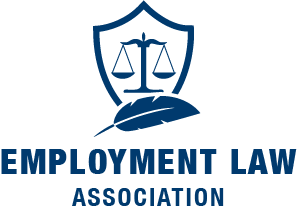Employment law is a body of laws, regulations, and rules that govern the relationship between employers and employees. It covers a broad range of topics, including wages and benefits, discrimination and harassment, termination and layoffs, health and safety, and workers’ compensation. Employment law is designed to protect the rights of employees and ensure that employers treat them fairly.
Wages and Benefits
One of the key areas of employment law is wages and benefits. This includes laws that regulate the minimum wage, overtime pay, and employee benefits like health insurance, retirement plans, and vacation time. In the United States, the Fair Labor Standards Act (FLSA) sets the federal minimum wage and establishes guidelines for overtime pay. Many states also have their own minimum wage laws that are higher than the federal minimum. Employers are required to pay their employees at least the minimum wage and provide overtime pay for any hours worked over 40 in a week.
Discrimination
Another important area of employment law is discrimination and harassment. The Civil Rights Act of 1964 prohibits discrimination on the basis of race, color, religion, sex, or national origin. This law applies to all aspects of employment, including hiring, promotions, pay, and termination. Other laws prohibit discrimination based on age, disability, and pregnancy. Employers are also required to provide a workplace free from harassment, including sexual harassment.
Termination
Termination and layoffs are other areas of employment law. Employers must follow certain procedures when terminating employees or laying off workers. They must provide notice to employees before laying them off, and they cannot discriminate against employees based on age, race, gender, or other protected characteristics. Employers must also provide employees with a reason for termination if they are fired.
Safety
Health and safety is another area of employment law. Employers have a legal obligation to provide a safe workplace for their employees. This includes providing training on safety procedures, providing protective equipment, and addressing any hazards in the workplace. Employers must also comply with regulations related to workplace safety, such as the Occupational Safety and Health Act (OSHA).
Workers’ Comp
Workers’ compensation is another important area of employment law. This is a system that provides benefits to employees who are injured on the job. Employers are required to carry workers’ compensation insurance and to provide benefits to employees who are injured while working. This can include medical expenses, lost wages, and rehabilitation services.
Other Issues
In addition to these areas of employment law, there are many other laws and regulations that govern the relationship between employers and employees. For example, there are laws that regulate employee privacy, whistleblower protections, and the right to organize and form unions. Employers must comply with all relevant laws and regulations, and failure to do so can result in legal action.
Employment law is a complex and constantly evolving area of law. It is important for both employers and employees to understand their rights and obligations under the law. Employers should consult with legal professionals to ensure that they are in compliance with all relevant laws and regulations. Employees who believe that their rights have been violated should also seek the advice of legal professionals.
Employment law is a vital area of law that governs the relationship between employers and employees. It covers a wide range of topics, including wages and benefits, discrimination and harassment, termination and layoffs, health and safety, and workers’ compensation. Employers must comply with all relevant laws and regulations, and employees should understand their rights under the law. By working together and respecting each other’s rights, employers and employees can create a positive and productive workplace. To learn more, contact a skilled employment lawyer. Thanks to our friends at Law Group of Iowa for their insight into employment law.
